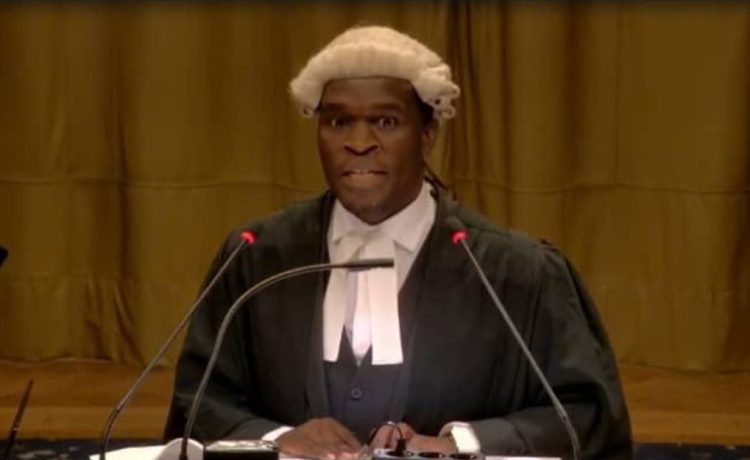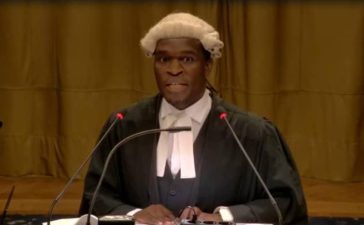The International Court of Justice (ICJ) commenced public hearings today on the significant and pressing matter of climate change, with Malawi’s Attorney General, Thabo Chakaka-Nyirenda, passionately advocating for the rights and needs of least developed countries (LDCs) at the Peace Palace in The Hague.
The sessions, which run from December 2 to December 13, 2024, follow a request for an advisory opinion on the obligations of states regarding climate change, initiated by the UN General Assembly resolution 77/276.
In his address, Malawi’s Attorney General underscored the “existential risk” climate change poses to vulnerable communities globally, stressing that over a century of anthropogenic greenhouse gas emissions has disproportionately affected nations like Malawi. He stated: “Malawi has contributed less than 0.01% to global greenhouse gas emissions, yet we face severe and disproportionate consequences from climate change.”
Malawi, a landlocked country in Southern Africa classified as one of the UN’s LDCs, is experiencing increasing challenges due to climate change, including altered rainfall patterns leading to agricultural decline, widespread food insecurity, and devastating climate-related disasters.
Recent events in Malawi illustrate these challenges: last year’s floods triggered the largest cholera outbreak on record, and Cyclone Freddy affected nearly 2.3 million individuals, with damages estimated at over $500 million.
Chakaka-Nyirenda argued that this disparity demonstrates a “crisis of inequity,” emphasizing that LDCs, which have contributed minimally to global emissions, disproportionately bear the brunt of climate disasters. He highlighted Malawi’s commitment to addressing climate change, including leading the 2024 Lilongwe Declaration on Climate Change, which urges significant reductions in global emissions.
During the hearings, Malawi called for the ICJ to incorporate three fundamental principles into its advisory opinion:
- The court’s strong mandate to act on the overwhelming support from the international community for climate action.
- The principle of common but differentiated responsibilities, which recognizes that while all states must participate in climate mitigation, their responsibilities differ based on their contributions to the problem and their capabilities to address it.
- An inclusive interpretation of international law that encompasses not only climate treaties but also multilateral environmental agreements, human rights treaties, and the overarching duty to protect the environment.
Chakaka-Nyirenda emphasized the importance of holding those responsible for climate change accountable, calling for an end to the “culture of impunity” and advocating for reparations and assistance for affected nations.
The proceedings signify a crucial moment in international climate change discourse, providing an opportunity for countries like Malawi to voice their experiences and advocate for just and equitable solutions on a global stage.
The ICJ’s advisory opinion is billed to ultimately guide the international community in understanding and fulfilling their climate obligations, paving the way for a more inclusive approach to combating the climate crisis.













